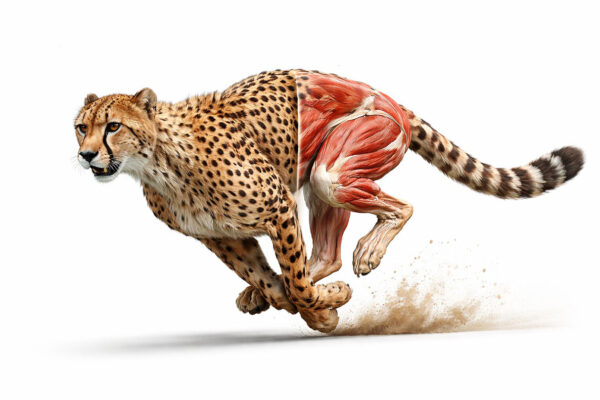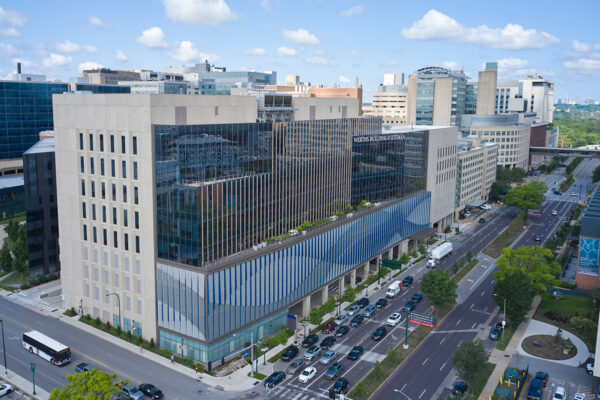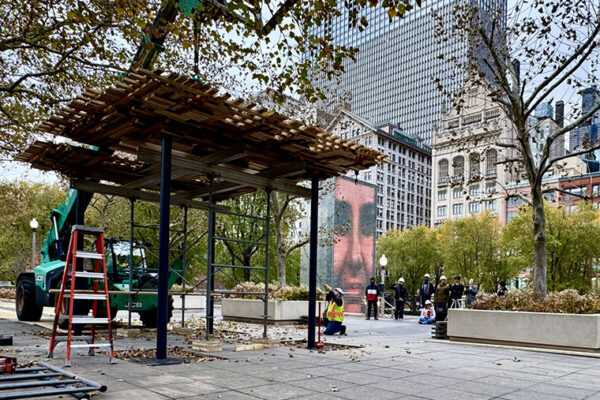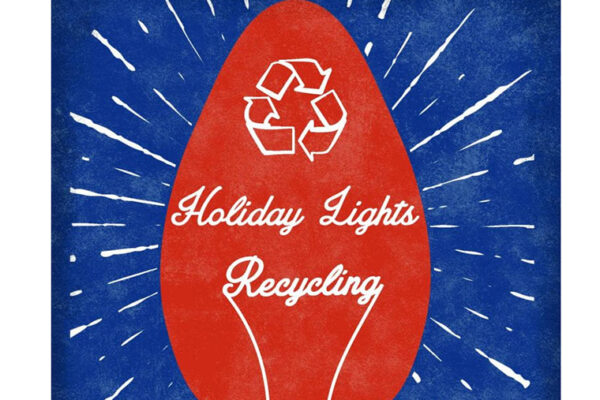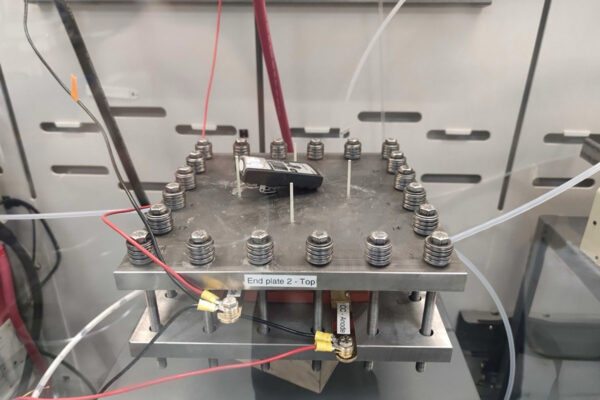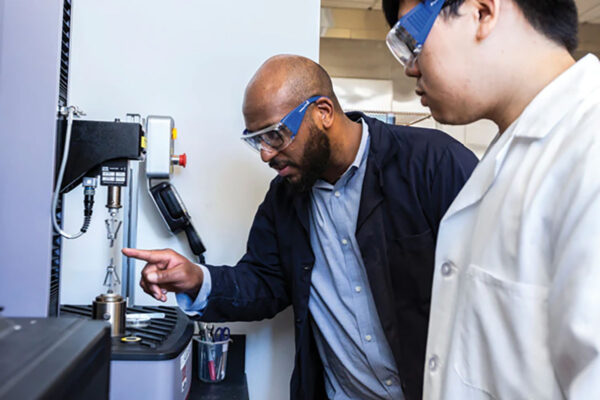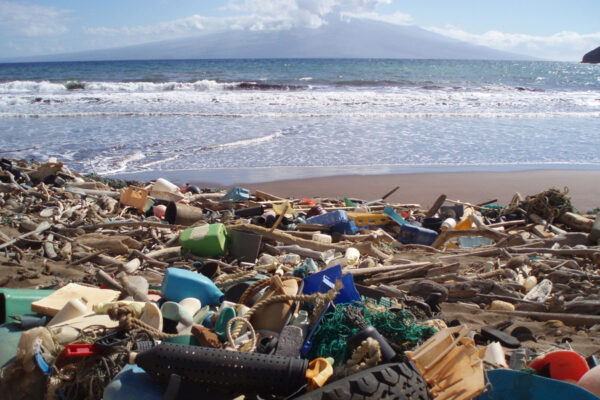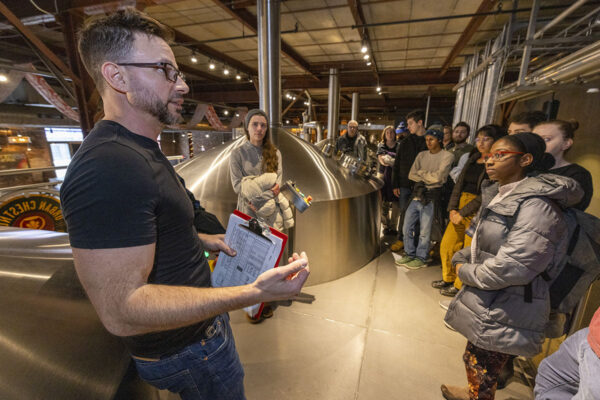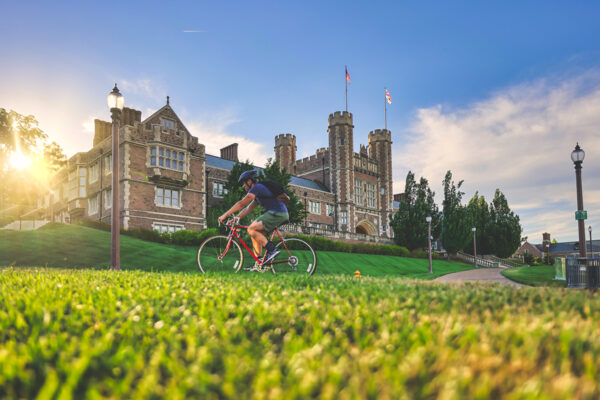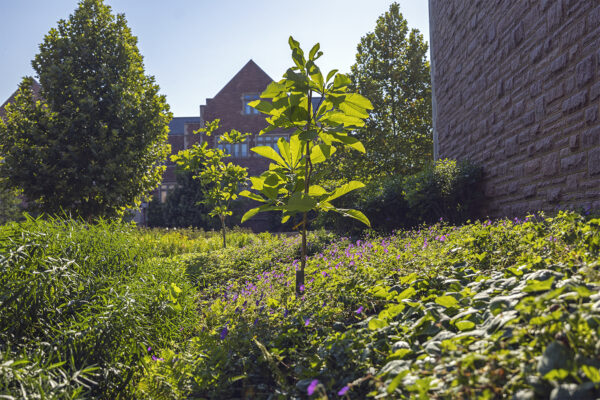Putting some ‘muscle’ into material design
Researchers at Washington University in St. Louis have developed muscle-inspired fiber materials for use in textiles, foods and biomedical applications.
Gary C. Werths Building earns LEED Gold
The nine-story Gary C. Werths Building at Siteman Cancer Center, based at Barnes-Jewish Hospital and WashU Medicine, has earned Leadership in Energy and Environmental Design Gold certification from the U.S. Green Building Council.
The life cycle of a building
New home construction is a major source of carbon emissions. Over the last three semesters, Hongxi Yin and Sam Fox School students helped develop a pavilion made entirely from salvaged materials. Now on view in Chicago’s Millennium Park, the project sequestered more carbon than it released.
Recycle old holiday lights on campus
WashU is again hosting a recycling drive for old or broken holiday lights. The annual drive runs through Jan. 16.
Inexpensive materials transform waste carbon into energy-rich compounds
Research from engineers at Washington University in St. Louis will help turn waste gas into energy-rich compounds for sustainable manufacturing.
Strengthening soy for better bioplastics
Researchers at Washington University in St. Louis are using surface chemistry to improve the strength of soy and cellulose-based biomaterials.
AI to spark new recyclable plastics design
Researchers at Washington University in St. Louis have received a National Science Foundation grant to use artificial intelligence to design a new kind of plastics that can be easily broken down and recycled.
Up to $5.2M in federal funds will enable WashU to develop new biomanufacturing capabilities
Researchers at Washington University in St. Louis are working on giving biomanufacturers a competitive edge by solving the challenge of continuous fermentation.
WashU earns gold accreditation for sustainability
For the third cycle in a row, WashU receives a prestigious sustainability recognition.
WashU Arboretum wins national honor
The WashU Arboretum, home to more than 7,000 trees, has received a national sustainability honor.
Older Stories
